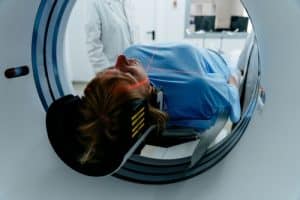The whole body MRI is crucial, especially for those at higher cancer risk due to factors like family history, aging, tobacco, sun and radiation exposure, alcohol consumption, chronic inflammation, certain viruses, poor diet, and obesity. Cancer screening may seem daunting, but early detection through whole body MRI is vital. It allows for early cancer detection, reducing the risk of cancer-related mortality and morbidity by initiating treatment before symptoms appear.
Types of Cancer Screening
Various methods exist for cancer screening. Some are specific to the type of cancer, such as mammography for breast cancer, HPV (Human papillomavirus) tests, and Pap tests for cervical cancer.
Different types of screening tests include physical exams, which help determine the overall health of your body and identify any abnormalities. Laboratory tests, such as blood, urine, and hormone tests, screen for cancer. Genetic tests analyze cells for DNA mutations, and screening for specific diseases.
Cross-sectional imaging, commonly used for cancer screening, includes MRI, CT, and ultrasounds to detect various cancers.

Whole Body MRI and Cancer Screening
A full body MRI scan is an effective way to screen for certain cancers and other diseases. With Whole Body MRI, you can detect tumors of specific sizes from your head to your knees. The scan can also identify inflammatory conditions, vessel abnormalities, spinal issues, and large joint problems.
MRI screening allows for cancer detection before symptoms appear. An early diagnosis enables timely treatment planning.
To be proactive about cancer, it is essential to start screening early. Early detection reduces the risk of cancer-related mortality and morbidity.
Taking charge of our health is essential for ensuring a long and quality life. Being proactive about our health means undergoing regular check-ups, maintaining a balanced diet, engaging in physical activities, and paying attention to our body’s signals. By being proactive, we can detect diseases like cancer early, allowing for more effective treatment and increasing our chances of recovery. Additionally, adopting healthy habits prevents the development of various chronic diseases and keeps us more energetic and happy. Therefore, taking responsibility for our health is a crucial investment that we should all make.






